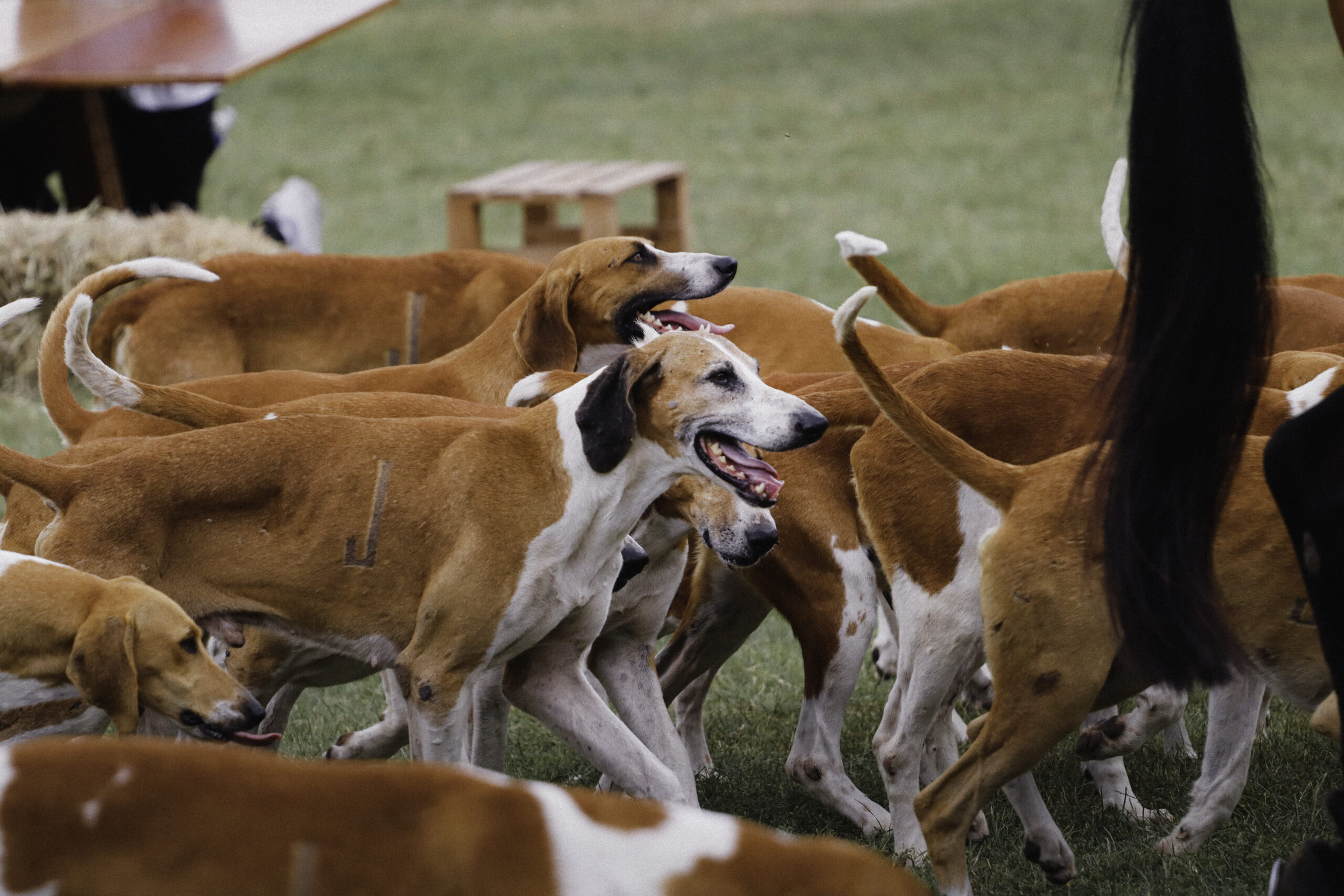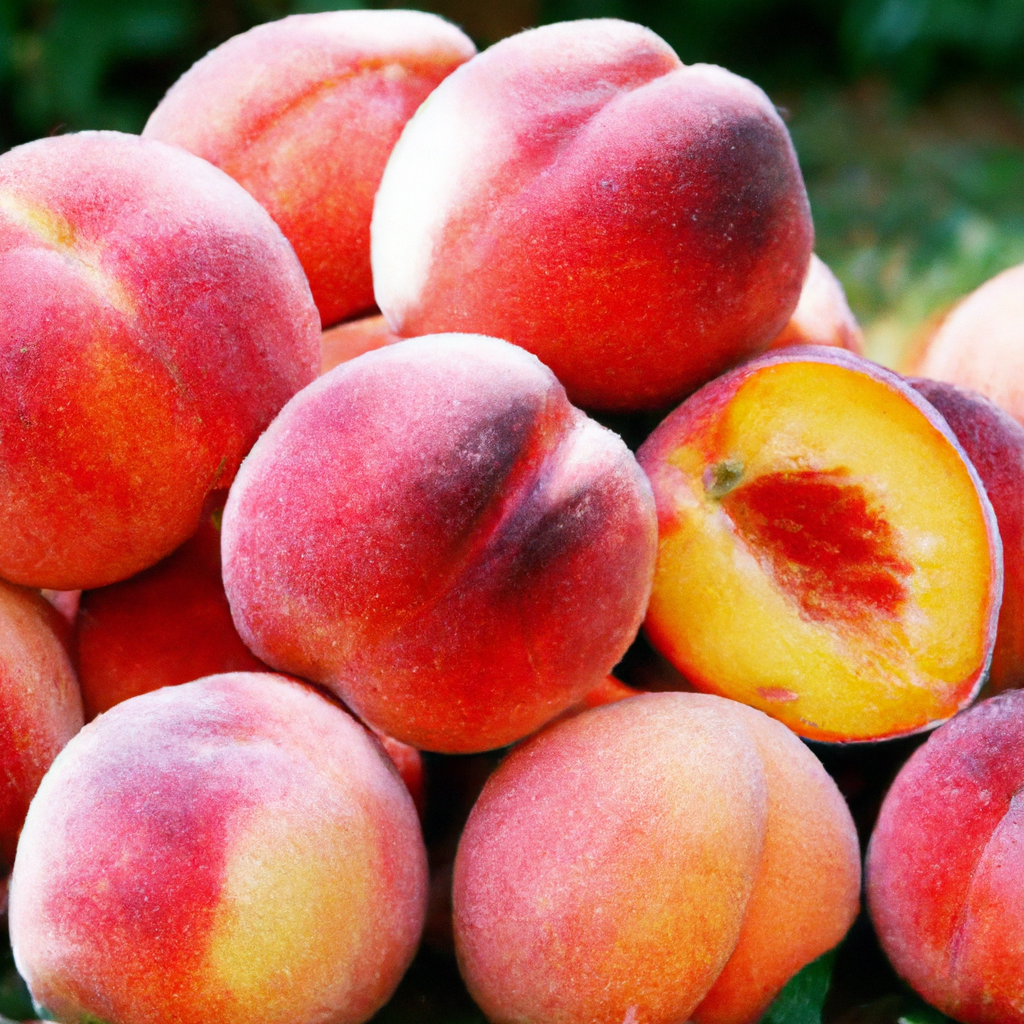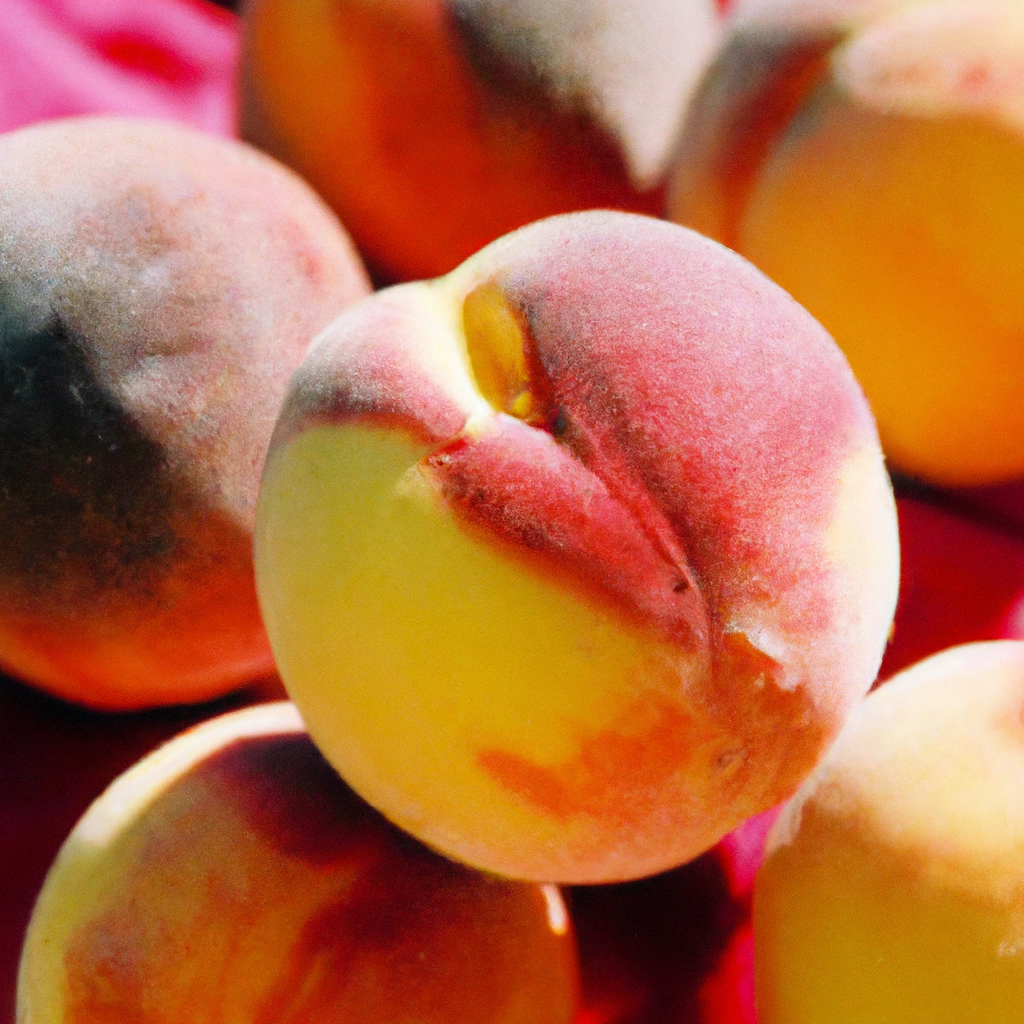In this article, we’ll explore whether dogs can safely indulge in the summery sweetness of peaches, and if it’s necessary to remove the pit before feeding them to our furry friends. While peaches may conjure up images of juicy satisfaction, it’s important to consider certain factors when it comes to sharing this delicious fruit with our canine companions. Let’s find out what experts have to say about this fuzzy dilemma and ensure that our four-legged pals stay happy, healthy, and peachy keen.

Health benefits of peaches
Peaches are not only a delicious and refreshing summer fruit, but they also offer numerous health benefits for humans. Rich in vitamins, minerals, and antioxidants, peaches can provide a significant boost to your overall well-being. Whether enjoyed fresh, grilled, or in a smoothie, incorporating peaches into your diet can be a great way to enhance your health.
Nutritional value of peaches
Peaches are packed with essential nutrients that are vital to your body’s proper functioning. They are a low-calorie fruit that is high in fiber, making them an excellent addition to a weight-loss or weight-management plan. Additionally, peaches contain a multitude of vitamins, including vitamin C, vitamin A, vitamin E, and vitamin K. These vitamins contribute to healthy skin, eyes, and immune system, while also promoting blood clotting and bone health.
Vitamins and minerals in peaches
One of the significant advantages of consuming peaches is their impressive vitamin and mineral content. Peaches are a good source of potassium, a mineral that plays a crucial role in regulating blood pressure and maintaining heart health. They also contain significant amounts of magnesium, which helps support strong bones and proper nerve function. Other minerals found in peaches include calcium, iron, zinc, and manganese, all of which contribute to maintaining overall wellness.
Antioxidants in peaches
A key component of peaches’ health-promoting properties is their abundant antioxidants. Antioxidants are substances that protect the body against free radicals, which are harmful molecules that can damage cells and contribute to various diseases. Peaches contain significant levels of antioxidants such as vitamin C, flavonoids, and phenolic compounds. These antioxidants help fight inflammation, reduce the risk of chronic illnesses, and protect against oxidative stress, thereby promoting longevity and overall health.
Can dogs eat peaches?
While peaches are undoubtedly a tasty and nutritious treat for humans, it’s natural to wonder if these fruits are safe for our furry friends to consume. Dogs have different dietary requirements than humans, and certain foods that are healthy for us may be harmful or toxic to them. In the case of peaches, it’s essential to understand the potential risks before offering them to your four-legged companion.
Potential risks of feeding peaches to dogs
Feeding peaches to dogs can pose several potential risks. First and foremost, dogs may experience allergic reactions to peaches, much like some humans do. Signs of an allergic reaction can include itchiness, redness, swelling, or gastrointestinal upset. Additionally, peaches contain natural sugars, which can be problematic for dogs, especially those with specific dietary restrictions or conditions such as diabetes. Moreover, the pit and the skin of the peach are not easily digestible for dogs and can cause digestive problems.
Allergic reactions in dogs
It’s crucial to be aware of the signs of allergic reactions in dogs when introducing peaches into their diet. Allergic symptoms can manifest as itching, hives, swelling, redness, vomiting, or diarrhea. If you notice any of these symptoms after your dog consumes peaches, it’s best to consult your veterinarian for guidance. They can help determine if your dog has an allergy to peaches or if there may be another underlying cause for their discomfort.
Digestive problems
Dogs have a unique digestive system that differs from humans, and certain foods can cause digestive issues for them. Peaches contain fiber, which can be beneficial for humans but may be difficult for some dogs to digest. The skin and pit of a peach can be particularly challenging for a dog’s digestive system to handle, potentially leading to upset stomach, constipation, or diarrhea. To avoid such problems, it’s essential to take precautions and prepare peaches in a way that minimizes these risks.

Precautions for feeding peaches to dogs
While peaches can be a tasty and nutritious addition to your dog’s diet, it’s essential to introduce them slowly and cautiously. Taking certain precautions can help ensure that your dog can enjoy peaches without any adverse effects. Here are some precautions to consider when feeding peaches to your furry friend:
Introduce peaches slowly
As with any new food, it’s important to introduce peaches gradually into your dog’s diet. Start by offering a small piece of peach and monitor your dog’s reaction for any signs of an allergic reaction or digestive distress. If your dog tolerates the peach well, you can gradually increase the portion size over time. This slow introduction allows you to observe your dog’s tolerance and ensure they can enjoy peaches without any negative consequences.
Start with small quantities
To mitigate the risk of digestive problems, it’s best to start with small quantities of peach and observe how your dog’s body reacts. Begin by offering a small slice or a few small pieces of peach and see how your dog’s digestive system handles it. If there are no adverse effects, you can continue to increase the portion size slowly. However, it’s important to remember that moderation is key, and providing too many peaches to your dog can lead to unwanted health issues.
Observe for any negative reactions
Whenever introducing a new food into your dog’s diet, it’s crucial to pay close attention to their body’s response. Keep a watchful eye on your dog for any signs of allergic reactions or digestive problems after consuming peaches. If you notice any adverse effects, discontinue feeding peaches immediately and consult with your veterinarian for further guidance. Every dog is different, and it’s essential to tailor their diet to their specific needs and sensitivities.

Preparing peaches for dogs
Before offering peaches to your furry friend, it’s crucial to take certain steps to ensure their safety and well-being. By properly preparing peaches for dogs, you can minimize potential risks and make them a healthy treat that your dog can enjoy. Here are some steps to follow when preparing peaches for your canine companion:
Wash thoroughly to remove pesticides
As with any fruit or vegetable, it’s important to wash peaches thoroughly before feeding them to your dog. This helps remove any pesticides or chemicals that may be present on the surface. Pesticides can be harmful to dogs, causing adverse effects on their health. By washing peaches, you can reduce the risk of exposing your dog to these potentially toxic substances and provide them with a safer treat.
Remove the pit and stem
Peach pits and stems are not suitable for dogs to consume and can pose several risks to their health. The pit contains a hard, indigestible core that can cause choking or obstruction in the digestive tract if swallowed. The stem, although smaller, can also present a choking hazard. Therefore, it’s important to remove both the pit and stem from the peach before giving it to your dog. This ensures that your dog can enjoy the fruit without encountering any potential dangers.
Cut the peaches into small, dog-friendly pieces
To make peaches easier for your dog to consume and digest, it’s recommended to cut them into small, bite-sized pieces. This helps prevent choking and makes it more manageable for dogs with smaller mouths or dental issues. By cutting the peaches into appropriate-sized pieces, you can ensure that your dog can safely enjoy their treat without any discomfort or health risks.





